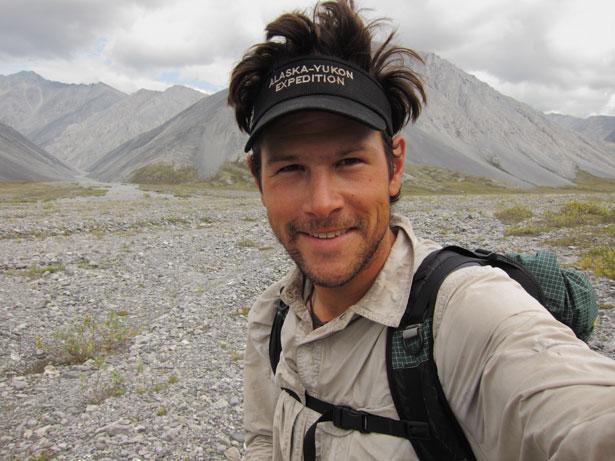South Africa: Skurka's Blog

“Can you please sign your passport?” the TSA official asked, handing it back to me with a pen. I chuckled, thinking that it was an appropriate start to this trip – I had not even left New York before I’d made it very clear that I was a newbie to international travel. Yes, I’ve been to all the Lower 48 states and parts of southern Canada; yes, I have hiked more than 20,000 miles in, around, and across these regions; and, yes, I was named “Adventurer” of the Year by National Geographic Adventure in 2007 – but this trip to South Africa was indeed going to be a new experience for me.
I boarded the daily 17-hour South African Airways flight from JFK to Johannesburg. It departs in the evening, stops in Senegal, and arrives in Johannesburg around 5pm local time (11am East Coast time), which may make it difficult to fall asleep the first night. [Hint: Fall asleep as soon as you can on the plane, and then stay awake until you reach Jo-burg.]
Most flights are uneventful, and besides one passenger suffering a medical emergency immediately prior to take-off, this one was too. (The fate of the passenger is unknown; a stroke was suspected. The plane returned to the gate, emergency crews removed the passenger, and then we took off.) Must say, I thoroughly enjoyed the guilty pleasures of business class travel, including the bottomless glass of wine, the post-dinner and post-lunch cheese plate, and the seat that leaned completely flat. On domestic flights I usually stare out the window and dream up new trips, but the view during an overseas flight is sadly monotonous – even if there were some exciting 50-foot swells on the Atlantic, you can’t see them from 40,000 feet up.
In this first blog I’d like to address the question “What drew me to South Africa for my first international trip?” First off, I know very little about the country – my history classes virtually ignored it, and so too does the American media – and I strongly feel that there’s no better way to learn than through personal experience. Second, I was drawn to both the romance and the risk of traveling through Africa – while I hoped to see lions on a hunt and to interact with locals in remote bush villages, I was also cognizant of the crime, poverty, and political instability that seems almost standard throughout the continent. This is definitely not Europe or Down Under; however, it’s also not Zimbabwe or the Ivory Coast – it is one of the wealthiest, most advanced, and most stable countries in Africa, for what that’s worth.
It is difficult – actually, I’d say impossible – to understand modern-day South Africa without understanding apartheid. And so today I spent the day learning about it: I visited the Museum of Africa (disappointing), Apartheid Museum (excellent), and the Hector Pieterson Memorial (sadly unmaintained), and took a tour of Soweto, a Jo-burg township where violent uprisings against apartheid occurred in the 1970’s and 1980’s.
For extensive information about apartheid, visit the Wikipedia page. Briefly, apartheid was a legalized system of racial segregation that was formally implemented beginning in 1948 by the Afrikaner-dominated National Party, justified on grounds that are not entirely clear to me and that are not rationally explained elsewhere either. (An Afrikaner is a white South African, usually of Dutch or British descent.) Apartheid seems to have been motivated by the desire to retain power – Ten percent of the population wanted control of all the wealth and the entire government, the remaining 90 percent be damned. I also have to think that apartheid was racially motivated – the Afrikaners still had the colonial mindset that they were superior to the natives and that control was an entitlement of theirs.
Apartheid was very restrictive for non-white populations (i.e. blacks, Indians, and “colored” or mixed race): they were limited in where they could live, travel, work, receive medical care, and get educated; no inter-racial marriage was permitted and no large groups could gather. Liberation movements and civil uprisings were forcefully suppressed through rigged charges, unjustified jailing, torture, and censorship. It was a disgusting system by Western standards. Apartheid was phased out starting in 1990 after a combination of civil violence and international political pressure. Nelson Mandela became the first democratically elected president, in 1994, after having spent 27 years in prison. Mandela was succeeded by current President Thabo Mbeki in 1999.
The South Africans in my tour group seemed pleased with the amount of progress that has been made since 1990 – they readily acknowledge past wrongdoings and seem very willing to look beyond racial differences. However, I am unconvinced that South Africans are fully aware of the likely longevity of the implications of apartheid: it will take many generations to offset the effects of a half-century of substandard education and health care, underdeveloped energy and transportation infrastructure, uninspired ambitions and dreams, and a great deal of other baggage.
Tasks and Activities
Comprehension
- Why did Andrew Skurka choose South Africa for his first international trip?
- What is his first destination? Locate the city on the map.
- What is Apartheid?
- What is an Afrikaner?
- What do you get to know about the Andrew Skurka?
Discuss
Andrew Skurka claims that "it will take many generations to offset the effects of a half-century of substandard education and health care, underdeveloped energy and transportation infrastructure, uninspired ambitions and dreams, and a great deal of other baggage." What does he imply? Discuss in groups. Write a comment to Skurka's statement explaining your point of view.
Writing
Write a blog post from your imagined or real journey to an English-speaking country. Include good advice and pictures.